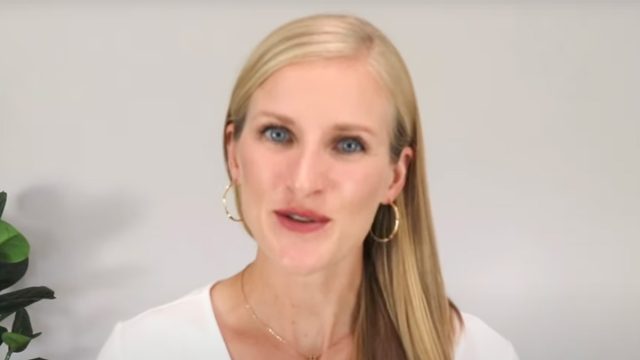20 Intermittent Fasting Mistakes Preventing You From Losing Weight
Are you already on the intermittent fasting bandwagon, but can't seem to lose weight? You might be making a critical mistake, claims one expert. Dr. Morgan Nolte, PT, DPT, GCS, is a board-certified clinical specialist in geriatric physical therapy and the founder of Zivli. In a viral YouTube video she discusses the most common missteps people make while practicing time restricted eating. "If you are using intermittent fasting to lose weight or get healthy, be sure to avoid these 10 common intermittent fasting weight loss mistakes," she says in the video. "The goal of this episode is to help you avoid 10 common intermittent fasting weight loss mistakes that I've made and that I see my clients make, especially beginners just getting started with fasting."
Keep in Mind That When You Start on the Weight Loss Journey, Your Body Might Take Time to Adjust

"When you're trying to lose weight or get healthy, there are so many forces working against you," she says. "Your body likes the status quo and doesn't want to change."
Intermittent Fasting Is a Great Tool to Lower Insulin and Get Your Body Into Fat Burning Mode

"Habits are hard to break, but using intermittent fasting is one of the best tools in your weight loss toolbox because when you don't eat, your insulin stays low. Insulin is your fat creation and storage hormone. So if you want to get into fat burning, intermittent fasting is a great tool to lower insulin," she continues.
If You Have Insulin Resistance There Is More to the Equation Than Just "Eat Less, Exercise More"

"When insulin is too high for too long, you may develop insulin resistance, which makes losing weight harder. It's also a root cause for type two diabetes, heart disease, and dementia. So living a low insulin and inflammation lifestyle is key to better health and keeping the weight off," Dr. Nolte continues. "It takes a more specific and targeted strategy than just eat less, exercise more to lose weight with insulin resistance."
Here Is Who Should Try Intermittent Fasting
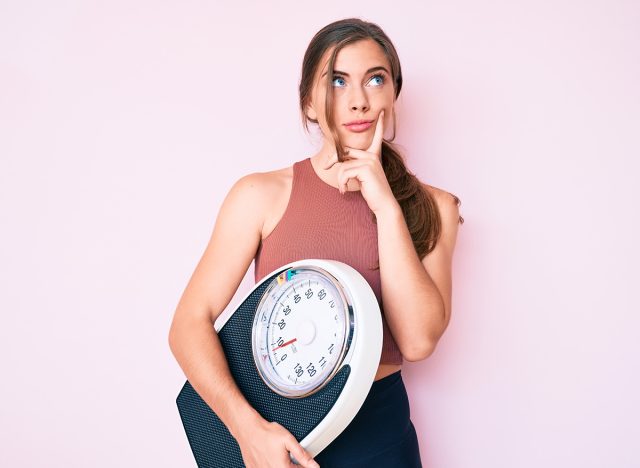
Who should try intermittent fasting? "If you've been at a weight loss plateau or are just getting started and maybe you've lost some weight but you're terrified to regain or you just have a few extra pounds to lose, intermittent fasting can be a helpful strategy for you," she maintains.
Keep in Mind That Intermittent Fasting Is Basically Time-Restricted Eating

She also wants to "take any drama or fear" out of the term intermittent fasting. "Everyone is already intermittent fasting. Anytime you are not eating, you are intermittently. Fasting when you're sleeping is a great example. So for that reason, I prefer the term time-restricted eating or feeding because it's more descriptive of what you're doing. You're shortening your eating window so that more time of your day is spent fasting to lower insulin."
Everyone Should Fast for 12 to 14 Hours a Day
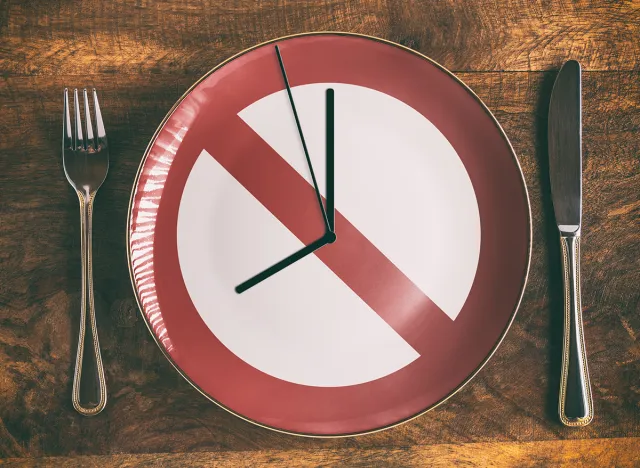
"I recommend everyone fast for at least 12 to 14 hours per day. That would be considered a baseline level of intermittent fasting, and in my opinion is ideally just part of everyone's lifestyle unless they have a medical reason not to," she says.
Moderate Intermittent Fasting Is 14 to 24 Hours Fast and Anything Longer, Advanced

"I consider moderate intermittent fasting, anything from about 14 to 24 hours," Dr. Nolte says. She defines "more advanced fasting" as "anything longer than a day." She recommends "moderate intermittent fasting because we want you to lose weight how you're gonna live the rest of your life and not necessarily view fasting as a diet," she says.
Talk to a Doctor Before Extending Your Fast

"There are good medical reasons for advanced or extended fasting, but they may require more direct medical supervision depending on your health conditions," she continues. "While intermittent fasting is the most powerful tool in your weight loss toolbox, it is still just one tool."
Mistake 1: Overeating or Eating Too Much Processed Food
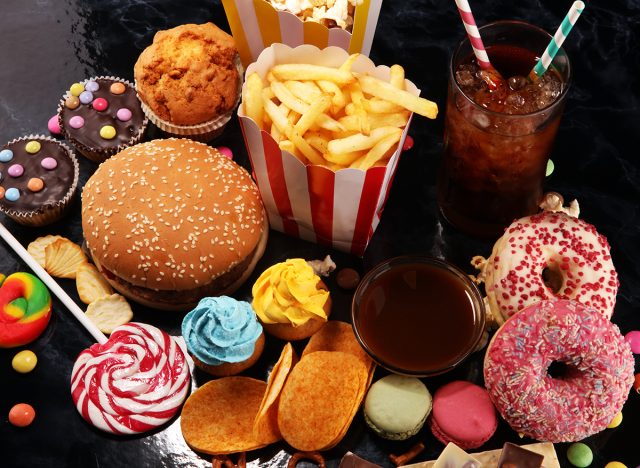
"What you eat and how much you eat is very important too. So mistake number one is overeating or eating too much processed food," Dr. Nolte reveals. "The golden rule of nutrition is to eat real unprocessed food. Whatever dietary pattern you ascribe to the golden rule still applies and will make that nutritional pattern healthier."
Mistake 2: Fasting Too Long

"The second major mistake, especially for those who want to make time restricted eating part of their lifestyle is they fast for too long," reveals Dr. Nolte. "Starting out, they shock their brain and body and develop a restriction mindset that leads to overeating or binging." Instead, "gradually increasing your fasting window versus going from say, a 10 hour fasting window to a 16 hour fasting window in one day," is the way to go. "Gradually increasing by 30 to 60 minutes will be easier for both your brain and your body to adjust, but before you advance your fasting window, refer to my first point about learning how to properly fuel your body so that when you are fasting, you're not as hungry."
Mistake 3: Underhydration

"Speaking of hunger, that brings me to the third mistake of under hydration. Much of the water we consume in a day comes during meals to help us chew and swallow our food. We also get some water from the food that we eat. So if you're not eating, it will be especially important to hydrate," she explains. "Aim for at least half your body weight in ounces of water per day. Ideally, your urine is clear or light yellow. Now, small amounts of caffeinated beverages like coffee or tea, like less than four to 500 milligrams would technically count towards your water intake."
Mistake 4: Drinking Alcohol or Sweetened Beverages – EvenThose with Non-Nutritive Sweeteners While Fasting

"The fourth intermittent fasting mistake is drinking alcohol or any sweetened beverage, whether with sugar or non-nutritive sweeteners, even the healthy ones, during your fasting window," she says. Sugary beverages, alcohol, and many zero or low calorie drinks like ice, Coke Zero, really anything sweet, will trigger the hypothalamic region in your brain to make you think that calories are coming in. The hypothalamus then sends a signal to your pancreas via your vagal nerve that says, 'Hey, you better get some insulin pumped out because we have some sweet stuff coming in.' Then the insulin gets pumped out, but there's not really a direct rise in the glucose because you didn't actually eat any sugar or calories. So insulin pushes glucose already in your bloodstream into your cells, which lowers blood sugar. This drop in blood sugar sends a signal to your brain to increase your hunger, which is not something that we wanna do when we're fasting.
Mistake 5. Not Having Electrolytes While Fasting
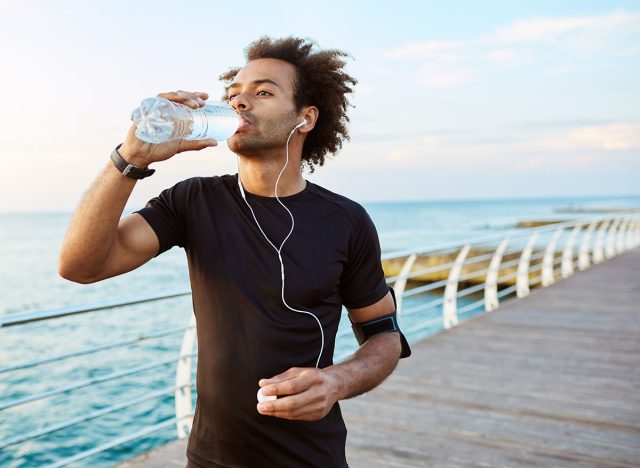
"Piggybacking on the hydration mistake is mistake number five, which is not having electrolytes when you're fasting," says Nolte. "This was a mistake that I made for a long time, but finally started taking them when I felt like my muscles were taking longer to recover from exercise than what I wanted." She recommends unflavored electrolytes with no added sugar or sweeteners.
Mistake 6: Fearing Exercise

"Mistake number six is fearing exercise when you're fasting," says Nolte. "This is one that's very personalized based on the level of intensity of your workouts and body composition goals." She recommends taking exercise one step at a time. "Start with where you're at and know that any movement is better than none. But for optimal mitochondrial health and fat burning an hour of zone two aerobic exercise several times a week can be great. If you're struggling through your workouts, try including electrolytes in your water during and after exercise."
Mistake 7: Eating Too Much Starch and Sugar During Your Window
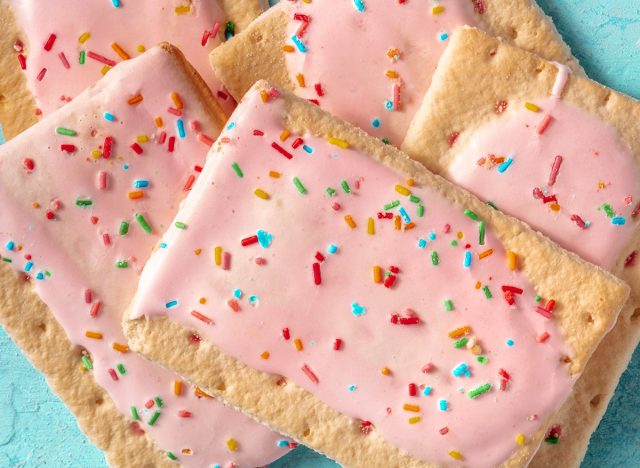
"Mistake number seven is eating too much starch and sugar during your eating window," says Nolte. "To maximize the benefits of intermittent fasting for weight loss and fat burning, it's important to reduce starches and sugars in your diet. Starches and sugar have the biggest insulin response of all three macronutrients. Now remember, the whole goal here is to live a low insulin and inflammation lifestyle. There are essential proteins and fats, and I'd argue that fiber is essential too, but there are no essential starches or sugars. So if you're at a plateau, do a nutrition audit and check to see how you could increase your portions of protein, fat, and fiber from whole foods and reduce the portions of starches and sugar."
Mistake 8: Fasting at the Wrong Time of Your Menstrual Cycle

"Now, mistake number eight is fasting at the wrong time of your menstrual cycle," Nolte continues. "If you're a woman still menstruating, the best time to experiment or start fasting is the week of your period up to ovulation. So about days one to 14, you won't wanna do longer fasts during ovulation or the week before your period."
Mistake 9: Fasting When You're Not Sleeping Well

Mistake number nine is fasting when you're not sleeping well. "Sleep deprivation will increase your hunger hormone, ghrelin and make fasting harder, not something that we want," she says. "If you're not sleeping at least seven hours a night, I'd focus on improving your baseline nutrition and sleep before starting anything longer than a 14 hour fast. It will just be easier and you're gonna see better results."
Mistake 10: Being Impatient and Giving Up Too Soon

"I've saved the best mistake for last, and that is being impatient about your results and giving up too soon," she says. "There is no entitlement in weight loss. I know that for some, when you fast, you feel like you deserve to see results on the scale right away, and you might because fasting lowers insulin faster than anything else. And when your insulin is lower, you'll excrete more water. So the first bit of weight you lose may be water weight. The weight loss will likely slow down, and that is 100% normal expected. And okay, we've got to get over the instant gratification mindset If our aim is long-term weight loss and better health because that mindset is not serving you."
Tackle One of These at a Time
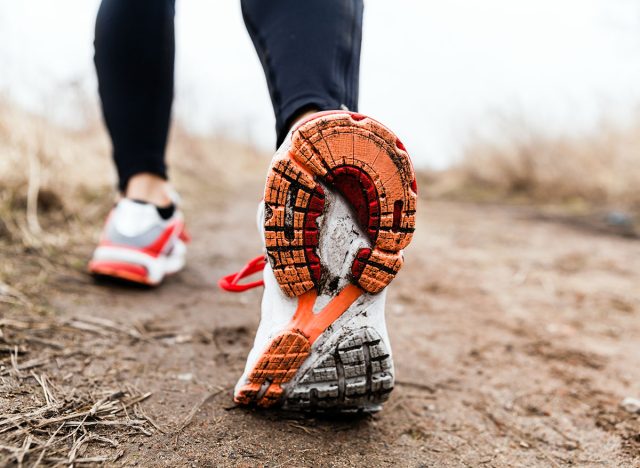
"No need to tackle all of these at once as that often leads to overwhelm, like you're taking two steps forward and then one step back," Nolte concludes. "Instead just pick one and narrow your focus, your efforts will be way more effective that way."
Follow Dr. Nolte on Social Media
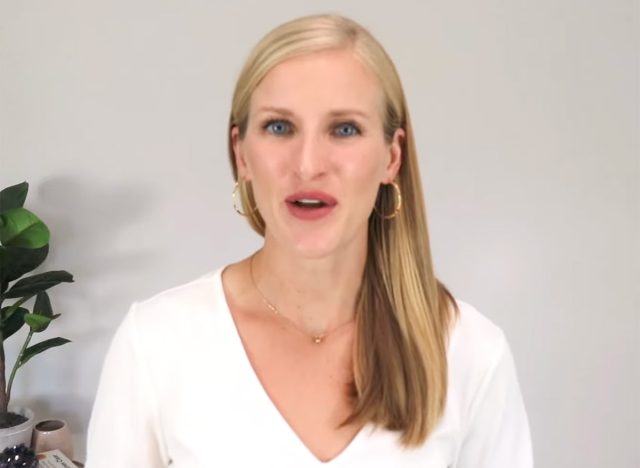
You can follow Dr. Morgan Nolte on social media for more intermittent fasting advice. Here is her YouTube Channel and Instagram account.
